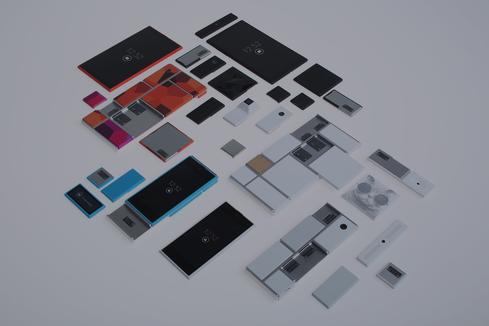Google Posts Project Tango Tablet Signup
Developers can now sign up to be notified when Google starts selling its Project Tango Tablet Development Kit later this summer.


Google's 10 Big Bets On The Future
Google's 10 Big Bets On The Future (Click image for larger view and slideshow.)
Google on Thursday presented a preview of its Project Tango Tablet Development Kit, an upcoming 7-inch Android tablet and associated software for creating apps that can track motion and map surroundings in three dimensions.
Project Tango is a product of Google's Advanced Technology and Projects (ATAP) group, which used to be part of Motorola Mobility. It's an attempt to arm mobile devices with processors and sensors for creating 3D models of local environments in real time.
In a Google+ post, the Project Tango team said the tablet had been created in collaboration with Nvidia, to take advantage of the chipmaker's new Tegra K1 mobile processor. Capturing and processing real-time maps of proximate objects demands high-performance silicon.
Beyond its Nvidia chip, the Project Tango tablet comes with 4 GB of RAM, 128 GB of storage, a motion tracking camera, an integrated depth sensor, WiFi, BLTE, and 4G LTE (where available). The tablet will be offered for $1,024, a price chosen for its significance to programmers -- that's 2^10 in decimal notation and 10000000000 in binary notation.
[Google has a lot going on. Read Google Previews Gmail Encryption.]
Last month, The Wall Street Journal reported that Google planned to order 4,000 Project Tango tablets just ahead of its developer conference, Google I/O, which runs June 25 and 26. On Thursday, Google posted a submission form inviting interested developers to sign-up to be notified when the devices are made available for purchase.
"Users who meet the criteria for a Project Tango Tablet Developer’s Kit will be whitelisted to purchase the device for $1,024 from Google Play in late-June," a Google spokesperson said in an email. "Developers who attend Google I/O will receive the first opportunity to purchase the devices."
As a barrier to entry, Google refuses to accept notification request submissions from "personal" email domains like Gmail.com, Live.com, and Yahoo.com. Serious developers are expected to have their own email domains or email addresses at a business domain.
The availability of hardware that can map a user's surroundings in real-time will expand what apps can do. Spatially aware apps will be able to incorporate people in the vicinity of Project Tango devices as participants in games, for example, or to track people as obstacles, like other inanimate objects, to faciliate robot navigation. They will be able to separate objects in images automatically, something that currently can only be done through careful manual image editing (in the absence of a green screen). A recent University of Pennsylvania research project shows how Project Tango spatial data can be used to allow a hovering drone to maintain its position in the air and to return to that position if moved.
Could the growing movement toward open-source hardware rewrite the rules for computer and networking hardware the way Linux, Apache, and Android have for software? Also in the Open Source Hardware issue of InformationWeek: Mark Hurd explains his "once-in-a-career opportunity" at Oracle.
About the Author
You May Also Like






